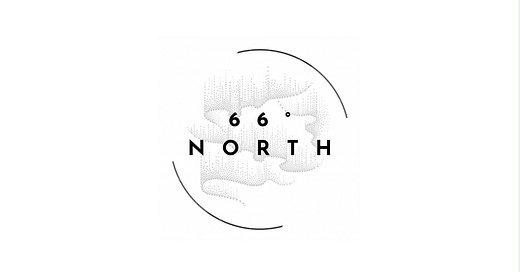The Arctic is changing daily.
The war in Ukraine has done away with cooperation in the High North. Russia is modernising its Arctic military and naval forces. It threatens to abandon a regional order it once helped to build. With backing from China, Russia aims to thwart alleged Western ambitions for Arctic dominance. In response, NATO states have been remilitarising the alliance’s northern flank. A new iron curtain is descending between the western and eastern halves of the Arctic, to the immense detriment of indigenous communities.
All the while, the climate crisis continues to devastate Arctic ecosystems. Under the receding polar ice cap, economic opportunity beckons. India, the UAE, and other ambitious outsiders are pushing northwards, in search of spoils, status and shipping routes. In dire need of new Arctic partners, Russia has become more accommodating to their advances.
Many Arctic newcomers are enticed by abundant oil and gas reserves. But other Arctic resources may be better placed to shape the planet’s future. On the Arctic seabeds, rare earths and minerals lie encased in polymetallic nodules. The deep-sea mining industry is waiting in the wings, impatient for the licenses required to launch their exploitation. Arctic metal deposits could accelerate the production of batteries, which are needed to power the ‘green transition’ of industrial economies. The Arctic’s own potential for renewable energy production, including wind and hydroelectric power, biomass, and geothermal energy, is immense. Faced with desertification and collapsing agricultural systems, growing nations are eyeing Arctic fisheries, freshwater reserves, and the agricultural potential of the melting permafrost. And with the Arctic being an essential region for global satellite operations, competition over the infrastructure that undergirds the digital economy of the future is slowly engulfing the High North.
Among cascading headlines on these issues, the Arctic seems destined for conflict.
But can the headlines be trusted?
66° North is a newsletter project by Lukas Wahden, a PhD candidate in International Relations at the Center for International Studies at Sciences Po Paris. It aims to contextualise the Arctic news cycle, providing commentary on emerging debates around the political future of the High North. Drawing on materials in English, Russian and Chinese, 66° North will consider divergent - and occasionally unsavoury - perspectives on the region. It will provide updates on recent developments, and add analysis wherever needed.
To promote the launch of the newsletter, a long-read post will be published on each day of its first week in existence. The posts will provide recaps of the most important news of the summer in five areas: Arctic sanctions and shipping, the North American Arctic, the Russian Arctic, China’s Arctic policy, and the Arctic space race.
If this sounds interesting to you, please consider to:
And feel free to get in touch: lukas.wahden@sciencespo.fr




